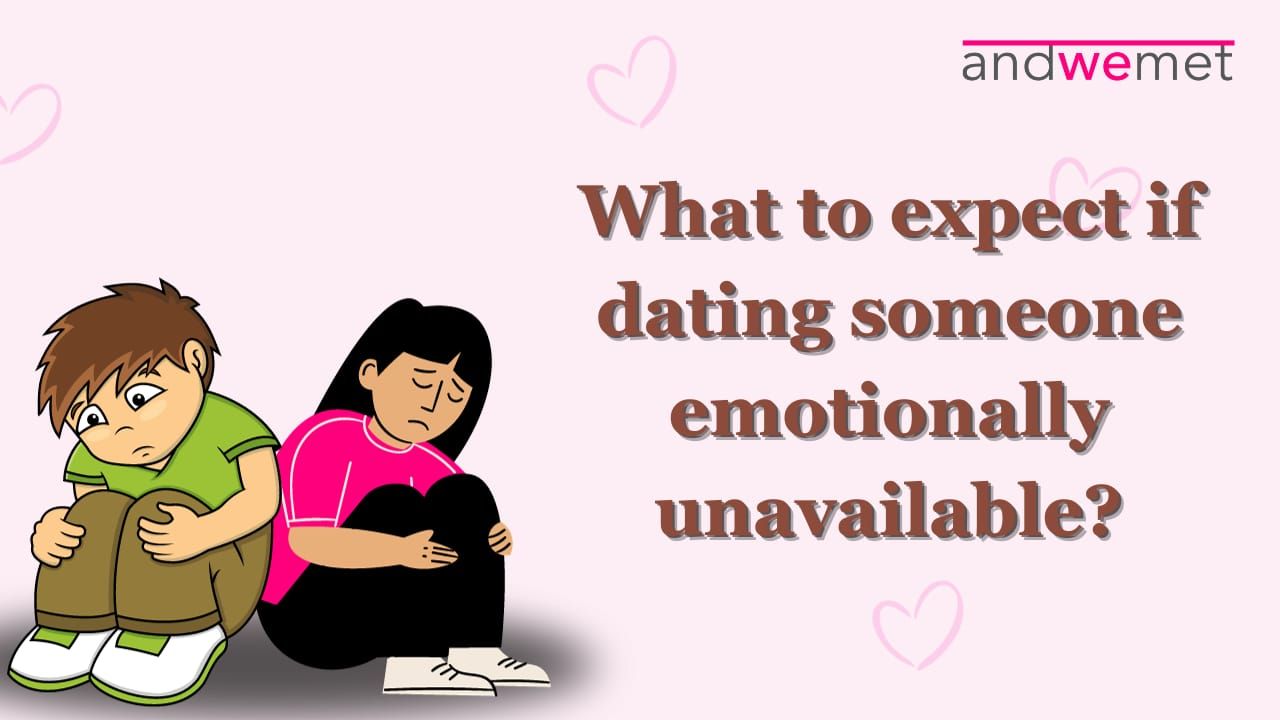What to expect if you are dating someone not emotionally available
Dating an emotionally unavailable partner can be challenging, as it often leads to unmet emotional needs and frustrations. Open communication and understanding their limitations are crucial. Recognizing signs of emotional unavailability early on can help avoid potential heartache

It is important to understand that emotional unavailability is not a personal flaw, but rather a coping mechanism that some individuals may use to protect themselves from potential pain or vulnerability. But dating someone who is emotionally unavailable can present unique challenges and complexities in a relationship. Be aware that frustrations may arise due to unmet emotional needs. It's crucial to communicate openly about your feelings and needs while understanding their limitations. It is crucial to be aware of the potential expectations and considerations that come with being in a relationship with an emotionally unavailable partner. Sharing a few:
1. Limited emotional expression: Limited emotional expression can create challenges in forming deep and meaningful connections with others. Emotionally unavailable individuals often struggle to share their feelings or express their emotions openly. This can leave their partners feeling frustrated, unheard, and disconnected. It’s important to understand the reasons behind limited emotional expression and how it can impact relationships.
2. Inconsistent communication: Anticipating inconsistencies in communication, periods of silence, and sporadic engagement can help you better understand and handle the dynamics of dating an emotionally unavailable person.
3. Fear of commitment: Having fear of commitment may result in reluctantance to engage in a serious, long-term relationship. This behavior can be frustrating and confusing for the person on the receiving end. It is crucial to understand the reasons behind emotional unavailability, which often stem from a fear of vulnerability and getting too close. By being prepared and knowledgeable about what to expect if dating someone emotionally unavailable, you can navigate the complexities of the relationship more effectively and make informed decisions moving forward.
4. Difficulty in trusting: It is important to recognize that trust-building may be particularly challenging for individuals who have had past experiences that make it difficult for them to trust and open up, even if you have established a strong connection.
5. Independence over intimacy: They may prioritize personal space and independence over emotional closeness, making it important to navigate the delicate balance between togetherness and autonomy.
6. Limited Support during challenging times: Emotionally unavailable individuals may struggle to provide the necessary emotional support during challenging times. They might find it challenging to offer comfort or share their own vulnerabilities. It is essential to recognize the signs of emotional unavailability early on to avoid potential heartache and frustration.
As for you, you will need to look into the following:
1. Self-reflection & patience: It's important to approach this type of relationship with a certain level of self-awareness and patience. Although it may not be easy, being with someone who is emotionally unavailable, it can offer an opportunity for self-reflection.
2. Consider your own needs: Reflect on your own emotional needs and whether the relationship is fulfilling them. It's crucial to prioritize your well-being and ensure that the relationship is healthy and supportive for both.
Building a long-term relationship with an emotionally unavailable person often requires patience and understanding, as well as a willingness to work on the emotional work that needs to be carried out. Understand that with time and effort, some emotionally unavailable individuals may learn to communicate better and become more emotionally present. However, this progress is not guaranteed and depends on the individual’s willingness to address their emotional barriers.
Also consider seeking professional guidance to navigate these challenges may work fruitful.
We have another writeup on this topic which can be read here.
